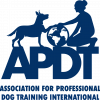Our dog buried this page in the backyard. We’ll dig it up soon! In the meantime, let us fetch you another page or take you back to our homepage!
Woof!
Our dog buried this page in the backyard. We’ll dig it up soon! In the meantime, let us fetch you another page or take you back to our homepage!
Our dog buried this page in the backyard. We’ll dig it up soon! In the meantime, let us fetch you another page or take you back to our homepage!
Our dog buried this page in the backyard. We’ll dig it up soon! In the meantime, let us fetch you another page or take you back to our homepage!
